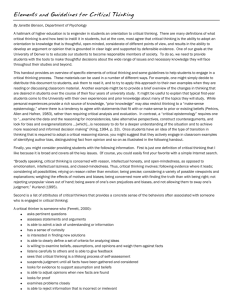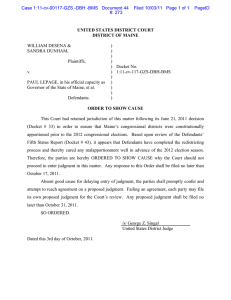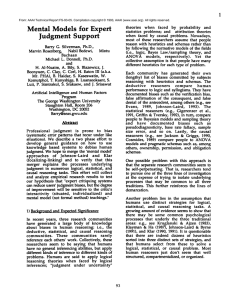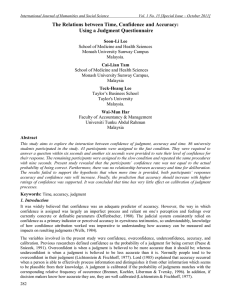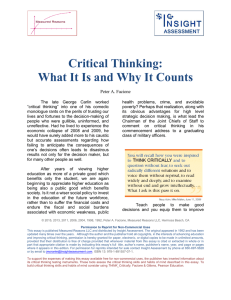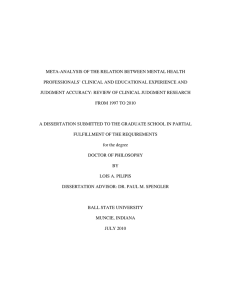Critical Thinking, Problem Solving and Decision Making
advertisement
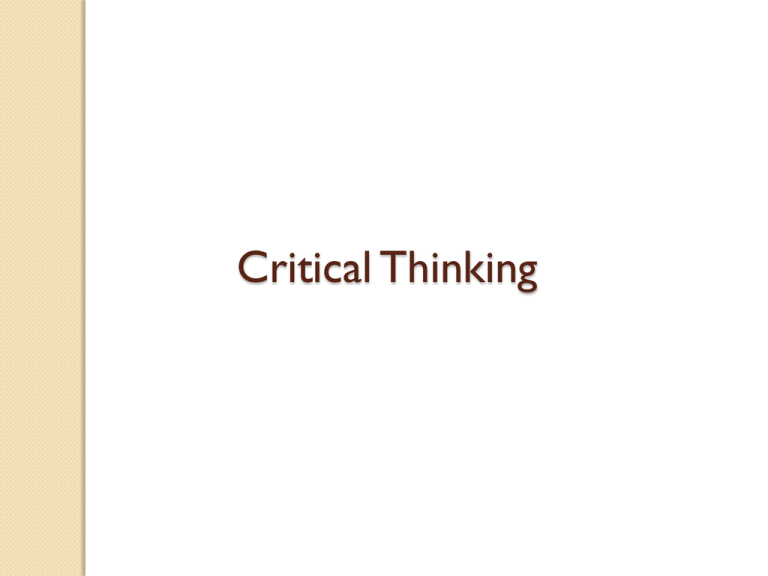
Critical Thinking “ Insanity is doing the same thing over and over again and expecting different results.” Albert Einstein What does this mean to you? What skills do you need to be a good critical thinker? Necessary Skills Good communication skills: listening skills speaking and writing skills asking good questions Good reasoning/evaluation skills creativity ability to compare possible solutions Skills Motivation to take action Ability to honestly assess outcome Definition Critical thinking is the intellectually disciplined process of actively and skillfully conceptualizing, applying, analyzing, synthesizing, and/or evaluating information gathered from, or generated by, observation, experience, reflection, reasoning, or communication, as a guide to belief and action. www.criticalthinking.org/aboutCT/definingCT.shtml In other words Critical thinking is a mental process of analyzing and evaluating information. In the model presented, the elements inform analysis and the standards inform evaluation. A quick survey I need six volunteers What is your favorite color? What did you drink with dinner last night? What would you prefer to wear: ◦ Pink High-top sneakers ◦ Black regular sneakers with the NBA logo Break information into parts Separate the ideas Compare and contrast Examine cause and effect Look for themes, patterns, and categories Separate Fact from Opinion A statement of fact is objectively real and verifiable A statement of opinion is a belief, conclusion, or judgment that is inherently difficult, and sometimes impossible, to verify Give me some examples Fact Opinion Perspectives and Assumptions Perspective – A characteristic way of thinking about people, situations, events, or ideas Assumption – A judgment, generalization, or bias influenced by experience and values Bias – a preference or inclination, especially one that prevents evenhanded judgment The Eight Elements of Thought Point of View Purpose Implications & Consequences Elements of Thought Conclusions Concepts Question at Issue Assumptions Information Let’s apply 4 of these to a current issue Question at issue What information do we have? Point of view Assumptions
